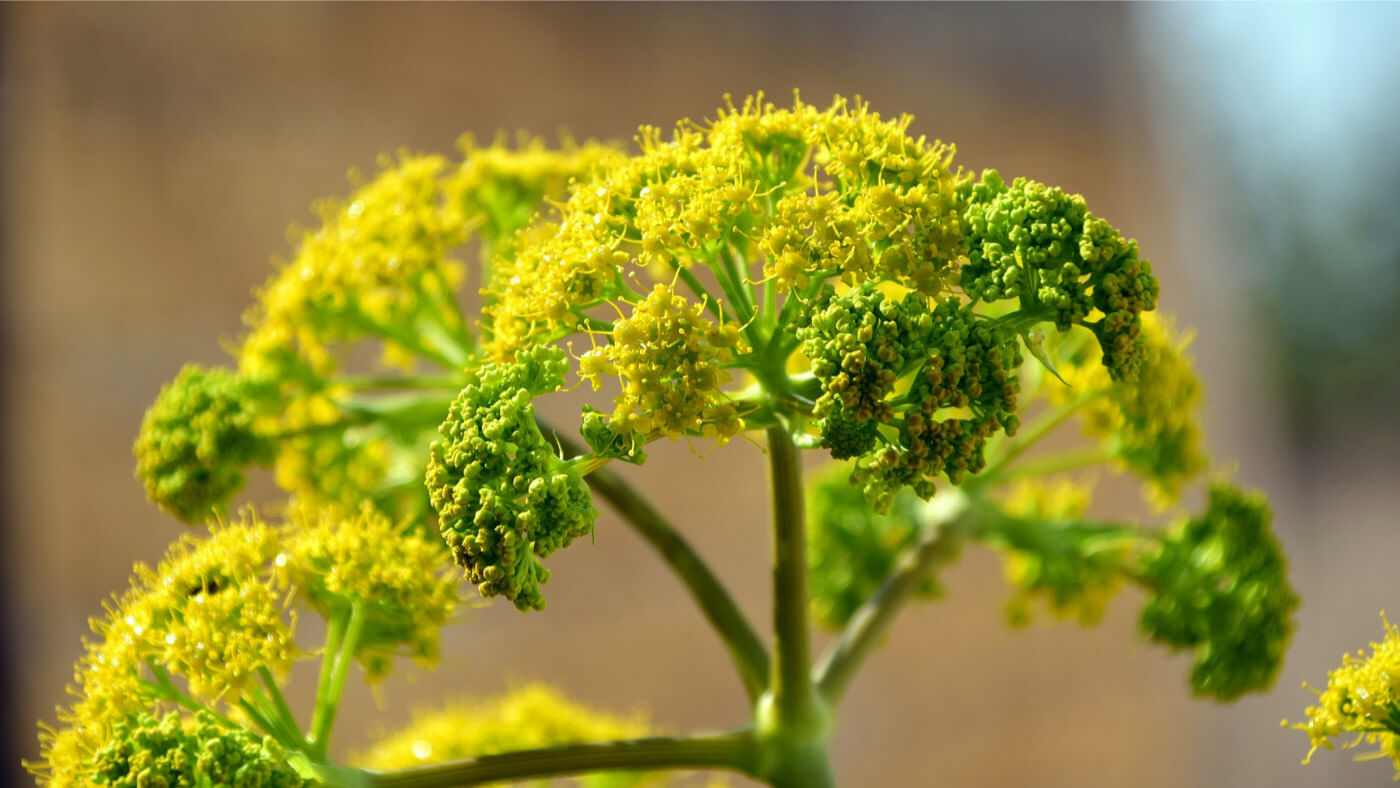
« Fennel's sweet taste quickly calms an upset stomach and reduces intestinal pain »
| Common name(s): | fennel, sweet fennel, large fennel |
| Family: | Apiaceae |
| Origin: | southern Mediterranean |
| Parts used: | seeds |
| Constituents: | essential oils (consisting of anethole, estrogole, fenchone), flavonoids (rutin, quercetin, kaempferol glycosides), fixed oils, tocopherols, sterols, silica |
| Therapeutic actions: | analgesic, antibacterial, anti-catarrhal, antifungal, anti-inflammatory, antioxidant, antimicrobial, antiseptic, antispasmodic, carminative, depurative, digestive, diuretic, emmenagogue, expectorant, galactagogue, hepatoprotective, laxative, nervine, phytoestrogenic, stimulant, stomachic, tonic, vermifuge |
| Organs or systems affected: | gastrointestinal system, respiratory system, central nervous system |
|
Main medicinal uses: |
|
| Counterindications: | Should not be taken during pregnancy, because it can stimulate the uterus |


